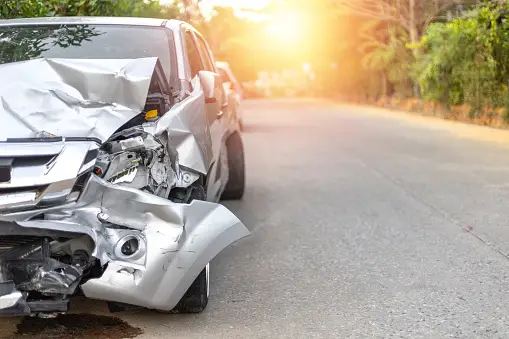Car insurance is a legal requirement in most states across the U.S., designed to protect drivers, passengers, and pedestrians in the event of an accident. However, some states offer alternatives to mandatory car insurance, allowing drivers to meet financial responsibility requirements through other means. Understanding these alternatives is crucial for drivers who want to explore different options for protecting themselves and others on the road. In this article, we will delve into the specifics of the states that do not require car insurance, including the alternatives they provide, the risks involved, and practical tips for navigating these unique regulations. This comprehensive guide will help you make informed decisions about your auto insurance needs and financial responsibilities.
Understanding Financial Responsibility
Before diving into specific states, it’s essential to understand the concept of financial responsibility. Financial responsibility laws ensure that drivers can cover the costs associated with car accidents. While car insurance is the most common method of fulfilling these requirements, some states allow drivers to use other means, such as posting a bond or depositing cash with the state.
Financial Responsibility Options
- Car Insurance: The traditional method, where drivers purchase insurance policies from private companies.
- Surety Bonds: A contract among three parties (the driver, the state, and the bond issuer) that guarantees payment for damages.
- Cash Deposits: Some states allow drivers to deposit a certain amount of money with the state as proof of financial responsibility.
- Self-Insurance: Typically for owners of large fleets, where the owner proves they have enough resources to cover any damages.
States Without Mandatory Car Insurance
New Hampshire
New Hampshire is unique in that it does not require drivers to carry car insurance. Instead, drivers must prove they can cover costs in the event of an accident. This can be done through a combination of cash deposits and bonds.
- Alternative Requirements: Drivers must provide proof of financial responsibility by either posting a bond or making a cash deposit of $75,000 with the state treasurer. If a driver is involved in an accident, they must provide evidence of their ability to pay for any damages.
- SR-22 Requirements: While insurance isn’t mandatory, drivers who have been convicted of certain offenses, such as DUIs, must file an SR-22 form to demonstrate financial responsibility.
Virginia
Virginia offers an alternative to car insurance through the payment of an uninsured motorist fee. This allows drivers to operate their vehicles without insurance, but it comes with significant risks.
- Uninsured Motorist Fee: Drivers can pay a $500 annual fee to the Department of Motor Vehicles (DMV) to legally drive without insurance. This fee does not provide any coverage; it merely allows the driver to operate a vehicle without insurance.
- Risks: Drivers who opt for the uninsured motorist fee remain personally liable for any damages or injuries they cause in an accident. This can result in significant financial burdens if they are involved in a serious accident.
Implications for Drivers
Choosing to drive without car insurance in states where it is permitted carries both benefits and risks. Understanding these implications is crucial for making an informed decision.
Benefits
- Cost Savings: Drivers save on insurance premiums, which can be a significant financial relief for those who drive infrequently or have a clean driving record.
- Flexibility: Drivers have the freedom to choose how they meet financial responsibility requirements, tailoring their approach to their specific circumstances.
Risks
- Personal Liability: Without insurance, drivers are personally liable for any damages or injuries they cause. This can lead to financial ruin if the accident involves significant property damage or severe injuries.
- Legal Consequences: Failing to meet financial responsibility requirements, such as not paying the uninsured motorist fee in Virginia, can result in legal penalties, including fines and license suspension.
- Limited Protection: Uninsured drivers have no protection against uninsured or underinsured motorists, leaving them vulnerable in accidents where the other driver lacks adequate coverage.
Comparison with States Requiring Insurance
To better understand the landscape, it’s helpful to compare the financial responsibility options in states without mandatory insurance to those that require it.
Coverage and Protection
- Mandatory Insurance States: Drivers must carry liability insurance, which provides coverage for damages and injuries caused to others. Additionally, many states require personal injury protection (PIP) and uninsured/underinsured motorist coverage.
- Non-Mandatory Insurance States: Drivers are not required to have liability insurance, leading to potential gaps in coverage. Alternatives like bonds or cash deposits provide financial responsibility but lack the comprehensive protection of insurance policies.
Costs
- Insurance Premiums: In states with mandatory insurance, drivers pay regular premiums, which can vary based on factors like driving history, vehicle type, and location.
- Alternative Costs: In states like New Hampshire and Virginia, drivers may save on premiums but face other costs, such as cash deposits or uninsured motorist fees.
Financial Responsibility
- Insurance: Provides a clear and structured means of meeting financial responsibility, with predefined coverage limits and benefits.
- Alternatives: Require more personal responsibility and financial planning, as drivers must ensure they have sufficient funds or bonds to cover potential liabilities.
Case Studies
New Hampshire: A Closer Look
New Hampshire’s approach to car insurance offers insights into the practicalities of not requiring mandatory coverage.
- Driver Profiles: Many drivers in New Hampshire still choose to purchase insurance, as it provides a convenient and comprehensive means of protection. However, those with a good driving record and financial stability may opt for alternatives.
- Accidents and Claims: When accidents occur, uninsured drivers must immediately prove their ability to cover damages. This can complicate the claims process and lead to delays in settlements.
- Legal and Financial Consequences: Drivers without insurance face the risk of severe financial loss. For example, a driver involved in a major accident without sufficient funds to cover damages could lose personal assets or face bankruptcy.
Virginia: Navigating the Uninsured Motorist Fee
Virginia’s uninsured motorist fee provides a different perspective on alternative financial responsibility.
- Fee Payment: While the $500 annual fee allows legal operation without insurance, it offers no protection in the event of an accident. Drivers must weigh the cost savings against the potential risks.
- Accident Scenarios: In accidents involving uninsured fee-paying drivers, the financial burden falls entirely on the driver at fault. This can lead to complicated legal disputes and financial hardship.
- Insurance Uptake: Despite the fee option, many drivers in Virginia still purchase insurance for the peace of mind and protection it offers.
Practical Tips for Drivers
For those considering driving without insurance in states that allow it, here are some practical tips:
Assess Your Financial Situation
- Emergency Fund: Ensure you have an adequate emergency fund to cover potential accident-related costs.
- Asset Protection: Consider the value of your assets and whether you can afford to risk losing them in the event of a major accident.
Understand Legal Requirements
- Compliance: Stay informed about the specific requirements in your state, such as bond amounts or fee payments.
- Documentation: Keep all necessary documentation readily available to prove your financial responsibility if needed.
Evaluate Coverage Options
- Insurance Quotes: Even if insurance isn’t mandatory, obtain quotes to compare costs and benefits.
- Hybrid Approach: Consider combining minimal insurance coverage with other financial responsibility methods for added protection.
Future Trends in Auto Insurance Laws
The landscape of auto insurance laws is continually evolving. Several trends may impact states that don’t currently require car insurance:
Technological Advancements
- Telematics: Usage-based insurance, leveraging telematics to track driving behavior, may become more widespread, offering flexible and cost-effective coverage options.
- Automated Claims: Advances in technology could streamline claims processes, making it easier for uninsured drivers to settle claims.
Legislative Changes
- Policy Shifts: Changes in state legislatures could lead to new regulations, either tightening or loosening financial responsibility requirements.
- Public Opinion: Shifts in public opinion towards greater safety and financial security may influence future legislative changes.
Economic Factors
- Insurance Market Dynamics: Fluctuations in the insurance market, driven by economic conditions, could impact the availability and cost of alternative financial responsibility options.
- Economic Stability: States with stronger economies may have more robust support systems for uninsured drivers, while those with weaker economies may face increased pressure to mandate insurance.
Conclusion
Navigating the complexities of car insurance laws requires a thorough understanding of each state’s unique regulations and the implications for drivers. States like New Hampshire and Virginia offer alternatives to mandatory car insurance, providing flexibility but also significant risks. Drivers must carefully assess their financial situation, understand legal requirements, and evaluate coverage options to make informed decisions. As the landscape continues to evolve, staying informed about technological advancements, legislative changes, and economic factors will be crucial for all drivers. Whether opting for traditional insurance or alternative methods, the ultimate goal remains the same: ensuring financial responsibility and protecting oneself and others on the road.
FAQs on States That Don’t Require Car Insurance
1. What are the alternatives to car insurance in states that don’t require it?
In states that don’t mandate car insurance, drivers can meet financial responsibility requirements through various alternatives:
- Surety Bonds: A contract among the driver, the state, and a bond issuer, guaranteeing payment for damages.
- Cash Deposits: Depositing a specified amount of money with the state as proof of financial responsibility.
- Uninsured Motorist Fee: Paying an annual fee that allows legal driving without insurance (specific to Virginia).
- Self-Insurance: Typically for fleet owners, proving they have sufficient resources to cover any damages.
2. What are the risks of driving without car insurance?
Driving without car insurance carries several significant risks:
- Personal Liability: Drivers are personally responsible for any damages or injuries they cause in an accident, which can lead to substantial financial burdens.
- No Coverage: Without insurance, there is no financial protection against damages caused by uninsured or underinsured motorists.
- Legal Consequences: Failing to meet financial responsibility requirements can result in fines, license suspension, or other legal penalties.
3. Why does New Hampshire not require car insurance?
New Hampshire does not mandate car insurance to provide drivers with more flexibility in how they meet financial responsibility requirements. The state allows drivers to post a bond or make a cash deposit to prove they can cover costs in the event of an accident. This approach emphasizes personal responsibility and financial independence.
4. What is the uninsured motorist fee in Virginia, and what does it cover?
The uninsured motorist fee in Virginia is an annual payment of $500 that allows drivers to legally operate their vehicles without carrying car insurance. However, this fee does not provide any coverage for damages or injuries. It simply permits the driver to drive without insurance. If involved in an accident, the driver is fully responsible for covering all costs out of pocket.
5. Can I choose to buy car insurance in states where it is not required?
Yes, even in states where car insurance is not mandatory, drivers can choose to purchase insurance for added protection and peace of mind. Many drivers in states like New Hampshire and Virginia opt for insurance to ensure they are covered in the event of an accident and to avoid the financial risks associated with being uninsured.




